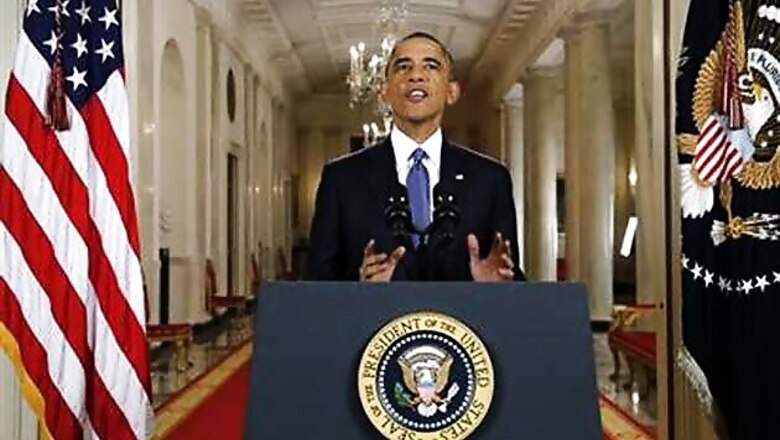
views
Washington: Spurning furious Republicans, President Barack Obama unveiled expansive executive actions on immigration on Thursday night to spare nearly 5 million people in the US illegally from deportation and refocus enforcement efforts on "felons, not families."
The moves, affecting mostly parents and young people, marked the most sweeping changes to the nation's fractured immigration laws in nearly three decades and set off a fierce fight with Republicans over the limits of presidential powers.
In a televised address to the nation, Obama defended the legality of his actions and challenged GOP lawmakers to focus their energy not on blocking his actions, but on approving long-stalled legislation to take its place.
"To those members of Congress who question my authority to make our immigration system work better, or question the wisdom of me acting where Congress has failed, I have one answer: Pass a bill," Obama said, flexing his presidential powers just two weeks after his political standing was challenged in the midterm elections.
Still, Obama's actions and the angry Republican response could largely stamp out prospects for Congress passing comprehensive immigration legislation under the current administration, ensuring that the contentious debate will carry on into the 2016 presidential campaign.
Republicans, emboldened by their sweeping victories in the midterms, are weighing responses to the president's actions that include lawsuits, a government shutdown, and in rare instances, even impeachment.
"The president will come to regret the chapter history writes if he does move forward," Sen. Mitch McConnell, the Kentucky Republican who is soon to become the Senate majority leader, said before Obama's address.
While Obama's measures are sweeping in scope, they still leave more than half of the 11 million people living in the US illegally in limbo. The president announced new deportation priorities that would compel law enforcement to focus its efforts on tracking down serious criminals and people who have recently crossed the border, while specifically placing a low priority on those who have been in the US for more than 10 years.
He insisted that his actions did not amount to amnesty.
"Amnesty is the immigration system we have today - millions of people who live here without paying their taxes or playing by the rules, while politicians use the issue to scare people and whip up votes at election time," he said.
The main beneficiaries of the president's actions are immigrants who have been in the US illegally for more than five years but whose children are citizens or lawful permanent residents. After passing background checks and paying fees, those individuals can now be granted relief from deportation for three years and get work permits. The administration expects about 4.1 million people to qualify.
Obama is also broadening his 2012 directive that deferred deportation for some young immigrants who entered the country illegally. Obama will expand eligibility to people who arrived in the US as minors before 2010, instead of the current cutoff of 2007, and will lift the requirement that applicants be under 31. The expansion is expected to affect about 300,000 people.




















Comments
0 comment